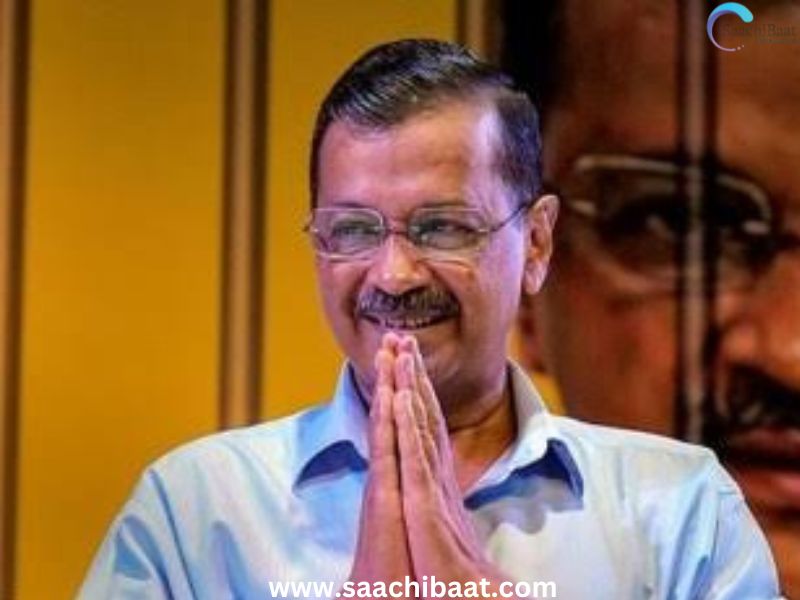New Delhi: In a major legal victory for Delhi Chief Minister Arvind Kejriwal, the Supreme Court granted him bail in the controversial Delhi excise policy case. Kejriwal, who had been in Tihar Jail for six months, walked out on Friday, September 13, 2024, to a large crowd of cheering supporters and party members. The court’s decision marks a critical moment in Kejriwal’s political and legal battle, as his arrest had been widely criticized by his Aam Aadmi Party (AAP) as politically motivated.
The Case Background The excise policy case revolves around alleged corruption in the now-scrapped Delhi liquor policy. The Central Bureau of Investigation (CBI) arrested Kejriwal in June 2024, charging him with being involved in irregularities related to the policy. His arrest followed a long investigation, which also saw the arrests of other prominent AAP leaders such as Manish Sisodia and Sanjay Singh. The Enforcement Directorate (ED) had previously probed Kejriwal for money laundering in connection to the case, but he was granted bail in that matter earlier.
Supreme Court’s Ruling The Supreme Court’s decision to grant bail was based on several key observations. Justices Surya Kant and Ujjal Bhuyan ruled that keeping Kejriwal in custody was unnecessary and a “travesty of justice.” They pointed out that the CBI had failed to provide sufficient evidence to justify his prolonged detention, especially since he had already secured bail in the ED case. Justice Bhuyan was particularly critical of the CBI’s timing of the arrest, noting that it seemed aimed at frustrating Kejriwal’s earlier bail.
Conditions of Bail
The Supreme Court imposed a few conditions for Kejriwal’s release. He was required to furnish bail bonds of ₹10 lakh and was instructed not to make public comments about the case. Additionally, the court directed him to attend all further hearings unless specifically exempted. These conditions reflect the court’s cautious approach to balancing justice while preventing any further escalation of the case.
Kejriwal’s Response
After his release, Kejriwal addressed a large gathering of AAP supporters outside Tihar Jail. In an emotional speech, he expressed his gratitude for their unwavering support and stated that his resolve had only grown stronger during his time in jail. He emphasized that his fight was not just about personal freedom but about standing up against forces that, in his view, are working against the nation’s interest. His remarks also took aim at the investigative agencies, hinting at what he perceives as their political bias.
Political Implications
Kejriwal’s release comes at a crucial time, as AAP is preparing to contest the upcoming Haryana Assembly elections and gearing up for the 2025 Delhi Assembly elections. His bail and the strong public support he continues to enjoy may bolster the party’s standing ahead of these elections. Additionally, Kejriwal’s release has triggered a wave of celebrations among AAP leaders and workers, signaling a sense of triumph amidst ongoing legal battles.
The Supreme Court’s decision to grant bail to Arvind Kejriwal marks a pivotal moment in the excise policy case. While the legal proceedings are far from over, Kejriwal’s release from Tihar Jail will undoubtedly strengthen his and AAP’s political position. As the case progresses, its impact on both the party’s future and Kejriwal’s personal political journey will continue to unfold.
××××××××××××××
Telegram Link :
For latest news, first Hand written articles & trending news join Saachibaat telegram group
https://t.me/joinchat/llGA9DGZF9xmMDc1
.

